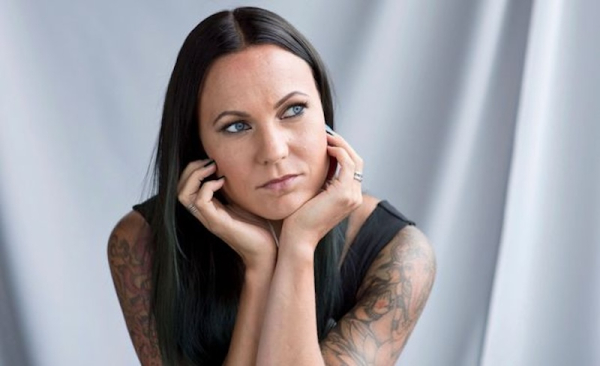Mira Luoti says she was sexually assaulted during TV show filming

Mira Luoti
- Next Article Orpo welcomes Ukraine’s inclusion after Trump-Putin Alaska talks
Mira Luoti, known for her role in the Finnish pop duo PMMP, has said she experienced sexual violence while filming a television entertainment programme. She shared the account publicly for the first time in a documentary to be aired by Yle on 6 September.
In the film PMMP keikalla: Ei enää ikinä, Luoti says she was assaulted during a shoot. She does not name the show or the person involved. “It was a complete nightmare,” she says in the documentary. “There were no surveillance cameras. This wasn’t harassment. It was sexual violence.”
Luoti says she reported the incident to those in charge of the production. According to her, their response was an offer of triple the standard appearance fee in exchange for silence. She accepted the offer. “I was so disappointed that they wouldn’t help. Even though I’m strong, I gave in. The psychological cost was huge.”
The documentary, directed by Kati Laukkanen, includes archival footage, interviews, and previously unaired material. It follows the story of PMMP, which became one of Finland’s most popular bands during the 2000s. The group disbanded in 2013 and returned briefly in 2024 for a reunion tour.
Alongside Luoti, Paula Vesala, her bandmate, also speaks in the documentary. Together, they recount the pressures of working in a toxic environment. The film details how they navigated sexual objectification, media mockery, and emotional exhaustion as young women in the spotlight.
Vesala recalls repeated experiences of being belittled in interviews and music industry settings. “There was a lot of sexualisation, and if not that, then intellectual belittling or name-calling,” she says. Both women say they often felt isolated and unprepared for what they faced. “We were thrown into cold water with no guidance, no debriefings,” Vesala says.
One of the scenes in the documentary features a clip from a 2004 Yle talk show where the host comments on a PMMP album cover and makes suggestive remarks about Vesala’s body language. Vesala appears visibly uncomfortable.
Elsewhere in the film, Vesala reads out a message from a veteran journalist who once categorised her as part of the “sexy pop star” class, in contrast to other women seen as serious musicians. She says the clip, seen decades later, shocked her. “I was afraid of how I would cope in that company.”
Luoti and Vesala explain how they responded differently to the pressures. “You can see in the film that Paula toughens up, and I start using humour to survive,” Luoti says.
The documentary also reflects on the broader structural issues within Finland’s music and entertainment industry. Both artists say the problems they faced were not isolated. “There were so many things swept under the rug. Even we didn’t always know how to speak up,” Luoti says.
They note that changes have occurred, particularly in the wake of the global #MeToo movement. Vesala says the industry has become more professional and less tolerant of abusive behaviour. “There are fewer people working in music today who make young women feel unsafe,” she says.
Yet both acknowledge that new challenges have emerged for young artists, including increased pressure around physical appearance. “Body peace and kindness. All artists are beautiful as they are,” Luoti says. “It’s sad that this is still a fight.”
They also highlight that recent years have brought fresh political and social tensions. “That freedom, we thought it was normal, but now it feels under threat again,” Vesala says. “There’s a new conservatism in the air.”
The pair say change requires courage. “Artists are standing together more than ever before,” Luoti says. “That’s how change becomes possible.”
The documentary includes emotional scenes in which the band members reflect on their 2013 break-up and their 2024 reunion. Vesala describes the original separation as resembling a divorce. The return to the stage, including performances at Helsinki’s Olympic Stadium, felt different. “This time it was healing,” Luoti says.
The final scenes capture the band’s connection with their audience, which both artists say was always central to their strength. “It was a murky societal atmosphere. But the audience gave us air,” Vesala says. “We never had to explain anything to them,” Luoti adds.
HT
- Next Article Orpo welcomes Ukraine’s inclusion after Trump-Putin Alaska talks
Source: www.helsinkitimes.fi
